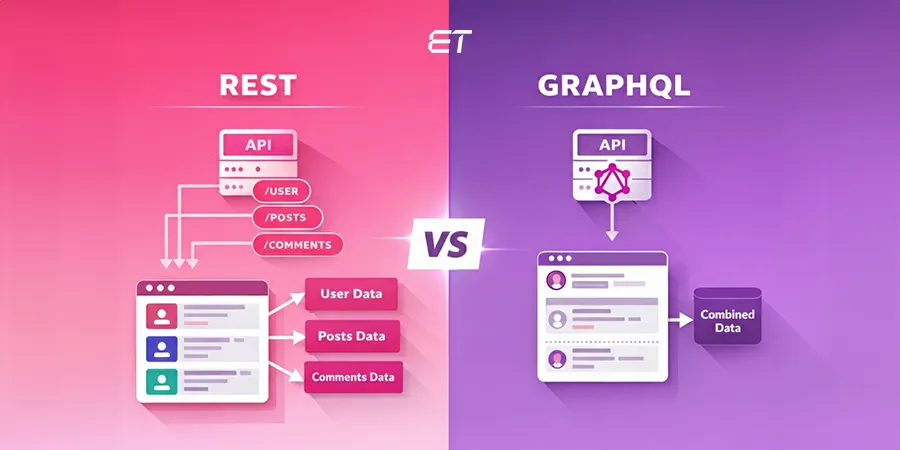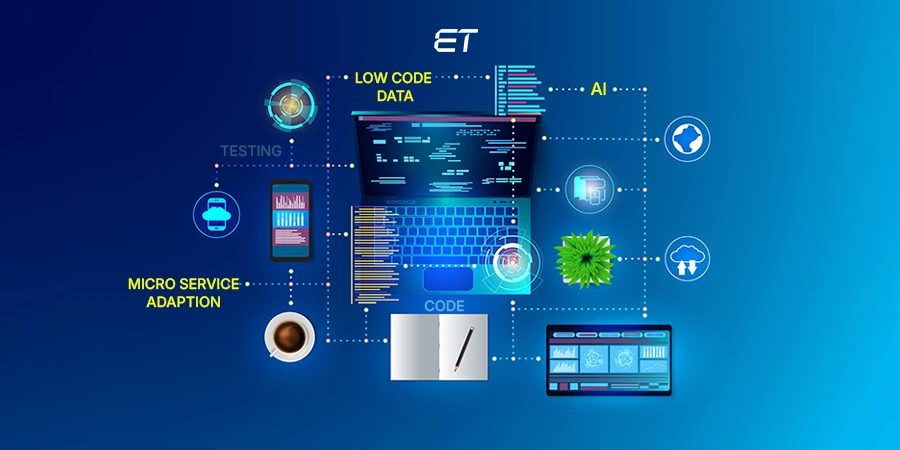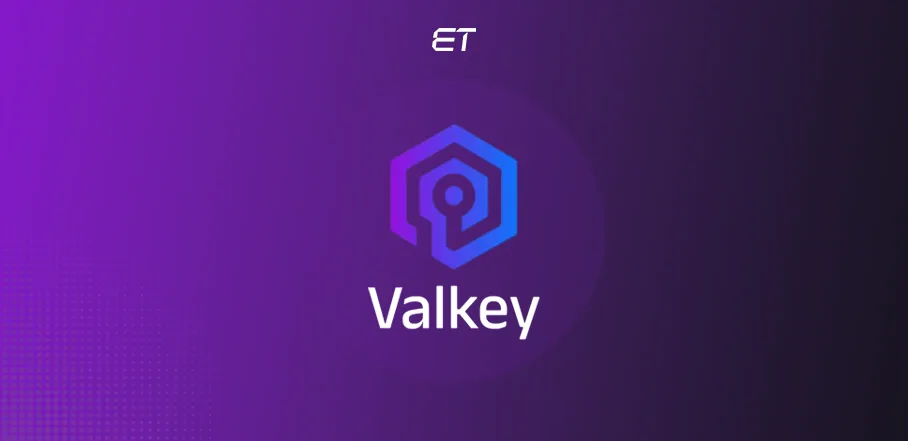
Introduction to Valkey: A High-performing Data Store
Some IT projects are the outcome of certain unforeseen events. Valkey is one such digital product.
It isn’t a separate entity. In fact, Valkey is a fork of Redis, the popular open-source database. Some months ago, Redis changed its BSD licensing to the paid model. Hence, some developers, led by the Linux Foundation, forked the code under the name ‘Valkey.’
If you are familiar with Redis, this news can seem like a sudden change. Can Valkey withstand or exceed Redis’s performance? Is it completely free to use?
This blog has all the answers. So, scroll ahead and familiarize yourself with this upcoming database.
Explore the potential of Valkey for your business. Connect with our experts in two simple steps!
Understanding the Basics of Valkey
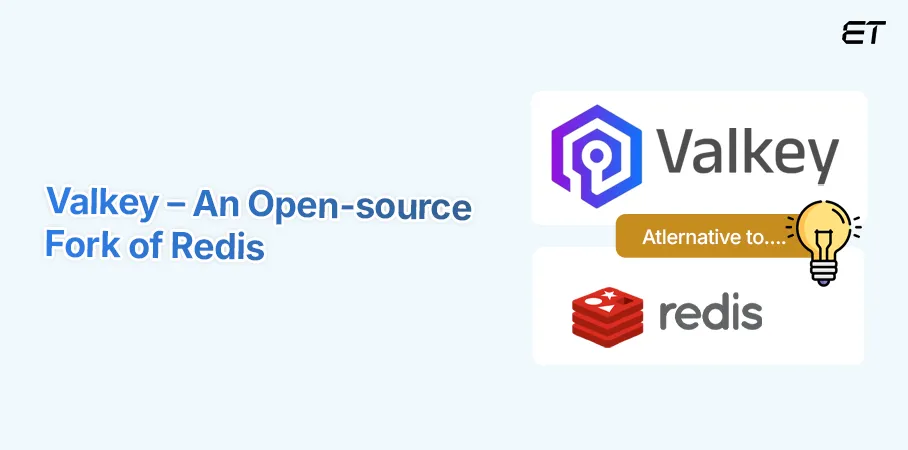
Valkey is a fork of Redis.
This means developers took the existing code of Redis (the well-known database software), copied it, and modified it. So, the result was another open-source product – Valkey.
What is the use of forking?
Well, forking is crucial to creating a new software version that suits the changing needs of users and developers.
What was the ‘unforeseen’ change with Redis?
After March 2024, Redis adopted the dual licensing model. The following are the quick details:
- Essential plan: $5 per month
- Pro plan: $0.881 per month
Now, the Linux Foundation has ensured that you can use a similar (or better) version of the database for free. This version is Valkey, an open-source and free data store.
With this development, you can expect several amazing features as well. The next section explains all the main ones.
The Key Features of Valkey
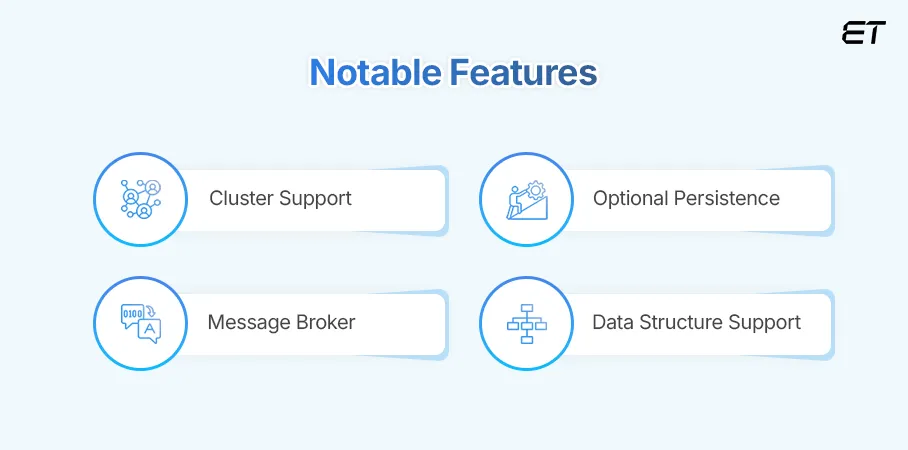
You can use Valkey as a message broker and a key-value database. Here are the features to consider:
- Cluster support for high scalability
- Support to optional persistence to disk for data durability
- Message broker for asynchronous communication between apps
- Support to a variety of data structures like strings, hashes, lists, sets, sorted sets, bitmaps, and HyperLogLog
- Useful for low-latency reads and writes
What’s more?
With Valkey, you can store time-series data and query geo-spatial information. So, this open-source data store has become a flexible solution for simple caching as well as complex real-time apps.
The Main Use Cases of Valkey
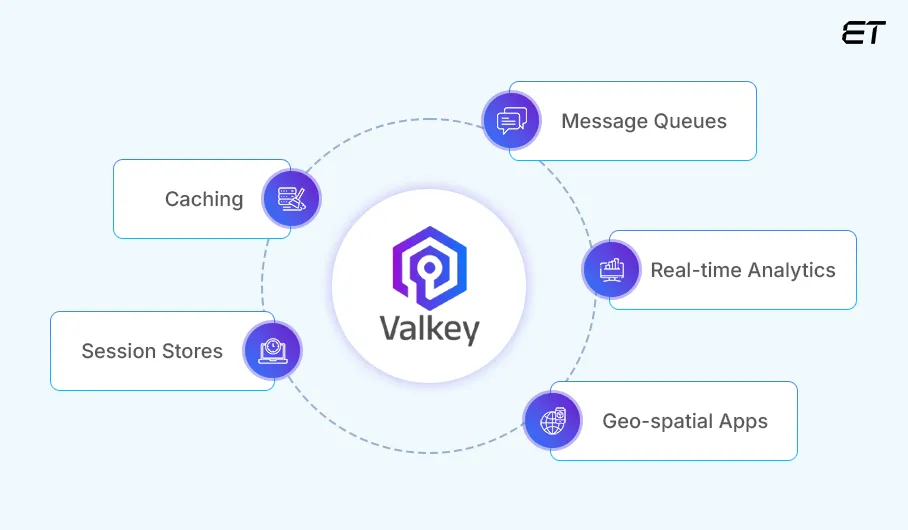
You can use Valkey for a variety of applications. In this section, we will provide a brief glimpse of the most prominent ones
1. Caching
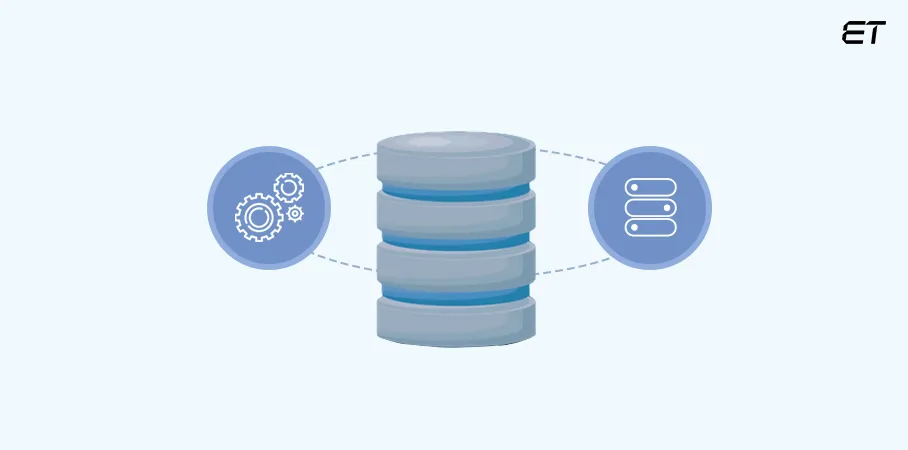
This technique is useful for storing frequently accessed data in memory. It reduces the need to fetch information from slower storage systems like databases.
Notably, Valkey is an excellent choice for implementing caching solutions due to the following reasons:
- Reduced Database Load: By caching frequently accessed data, Valkey can reduce the load on your database servers
- Improved Response Times: By serving data directly from memory, it can improve the response time of your application
- Scalability: Valkey can scale horizontally to handle increasing traffic and data volumes
- Flexibility: Valkey supports a variety of data structures, making it suitable for caching different types of data
Overall, you can boost the performance and scalability of various projects using Valkey.
2. Session Stores
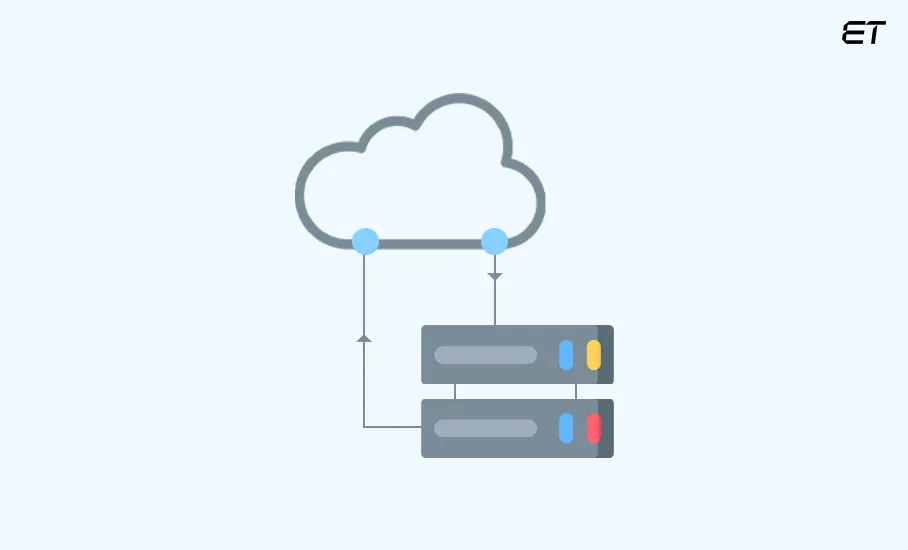
Simply put, a session store is a mechanism for storing user session data like login information, shopping cart items, and user preferences. Valkey can prove as a great data store for this purpose due to the following aspects:
- High Performance: Valkey can handle a large number of concurrent sessions with low latency
- Reliability: You can configure it to persist session data to disk, ensuring data durability
- Flexibility: Valkey supports a variety of data structures. So, it is suitable for storing different types of session data
By utilizing Valkey for session storage, you can build robust and scalable web apps that can handle a large number of concurrent users.
3. Message Queues
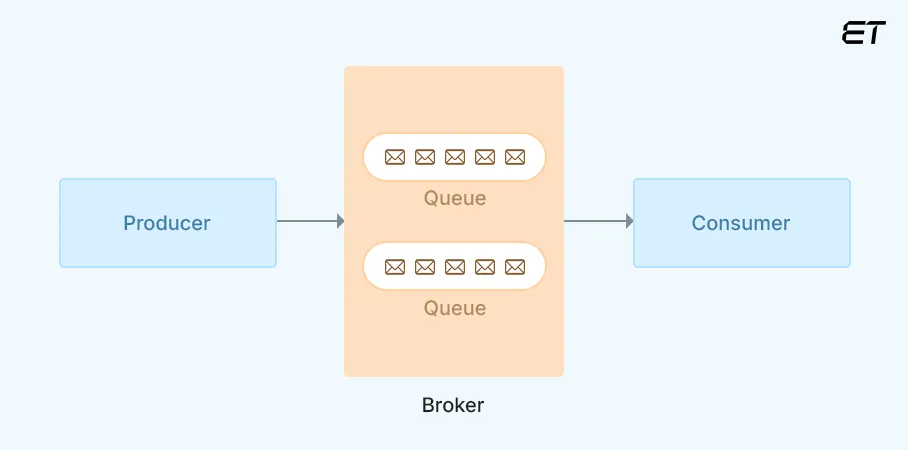
A message queue is a software design pattern useful for asynchronous communication between different parts of an application.
Valkey offers the following benefits for message queues:
- Scalability: Valkey can scale horizontally to handle increasing workloads
- Reliability: It ensures reliable message delivery, even in the event of failures
- Flexibility: Valkey supports different message queuing patterns, such as publish-subscribe and point-to-point
Notably, you can serialize messages into a suitable format (e.g., JSON, Protobuf) before storing them in Valkey. It is also possible to implement a mechanism for consumers to acknowledge the receipt of messages.
All in all, Valkey allows you to build highly scalable and resilient applications that can handle complex asynchronous communication patterns.
4. Real-time Analytics

Real-time analytics involves processing and analyzing data as it is generated, allowing for immediate insights and decision-making.
Valkey is suitable for this use case due to the following advantages:
- High Performance: Valkey can process and analyze data in real-time, allowing for rapid insights
- Scalability: It can scale horizontally to handle increasing data volumes and processing needs
- Integration: You can integrate Valkey with other tools and technologies, such as data streams, machine learning frameworks, and visualization tools
Using this data store, you can gain valuable insights into your data and make crucial decisions in real-time.
Discover the secret to instant data access! Dive into our Real-Time API blog today!
5. Geo-spatial Applications

The final use case, geo-spatial applications, involves working with data tied to specific geographic locations.
Valkey has a flexible data structure and efficient querying capabilities. So, it can be helpful in various geo-spatial apps due to the following benefits:
- High Performance: Valkey can efficiently store and query large amounts of geo-spatial data
- Flexibility: It supports various geo-spatial data structures, such as GeoHash
- Integration: Valkey can be integrated with other geo-spatial tools and libraries
Moreover, this open-source product allows you to develop geo-spatial applications such as location-based services, geo-fencing, heatmaps, and more.
So, Valkey enables you to build powerful and innovative applications that leverage the power of location-based data.
Should You Use Valkey?
Now, the main question with any software or digital product is usability. If you use Redis, does it make sense to shift to Valkey?
Well, apart from its open-source nature, Valkey offers various advantages and limitations. Here are some of the main ones to consider:
| Pros of Valkey | Cons of Valkey |
| High performance | Newer project |
| Cluster support | Fewer features |
| Active community | Stability concerns |
| Rich data structures |
Choosing Valkey comes down to your project needs. You can use this data store under the following circumstances:
- You want a database that can handle high traffic and low-latency operations
- Your team prefers open-source software and wants to have control over the codebase
- You are looking for a cost-effective solution, especially for smaller-scale applications
- Your developers need a database that supports a variety of data structures and use cases
On the other hand, we recommend trying other alternatives under the following conditions:
- You need a more mature and widely supported database like Redis
- Specialized options can be more suitable for use cases like time-series data or graph databases
- You prefer managed services with high availability and scalability (like Amazon Redis or Google Cloud Memorystore)
So, the choice is yours. Valkey offers a promising start to maintaining flexible databases’ free and open-source nature. However, it is still in its initial phase.
In a Nutshell
Valkey is a recently released open-source database that is a fork of Redis. The latter’s licensing change was one of the main reasons for its inception.
The active community of this flexible database promises various developments and modifications. You can try it out, as it supports a wide variety of use cases, such as caching, session stores, message queues, real-time analytics, and geo-spatial apps.
For more guidance on using either Redis or Valkey, ensure you team up with experienced developers. Such professionals can help determine the best database for your project.
Your breakthrough moment is one click away. Share your vision, and we’ll make it a reality!
Frequently Asked Questions
1. How Valkey is Different from Redis OSS?
Valkey is a fork of Redis. Developers created it in response to changes in Redis’s licensing model. It offers similar features but focuses on open-source principles. Valkey aims to provide enhanced performance, scalability, and observability while maintaining compatibility with Redis.
2. Is Valkey legal?
Yes, Valkey is legal. It is an open-source project, which implies that its source code is freely available and can be used, modified, and distributed legally. The project is developed and maintained by a community of developers who are committed to its ongoing development and support.



